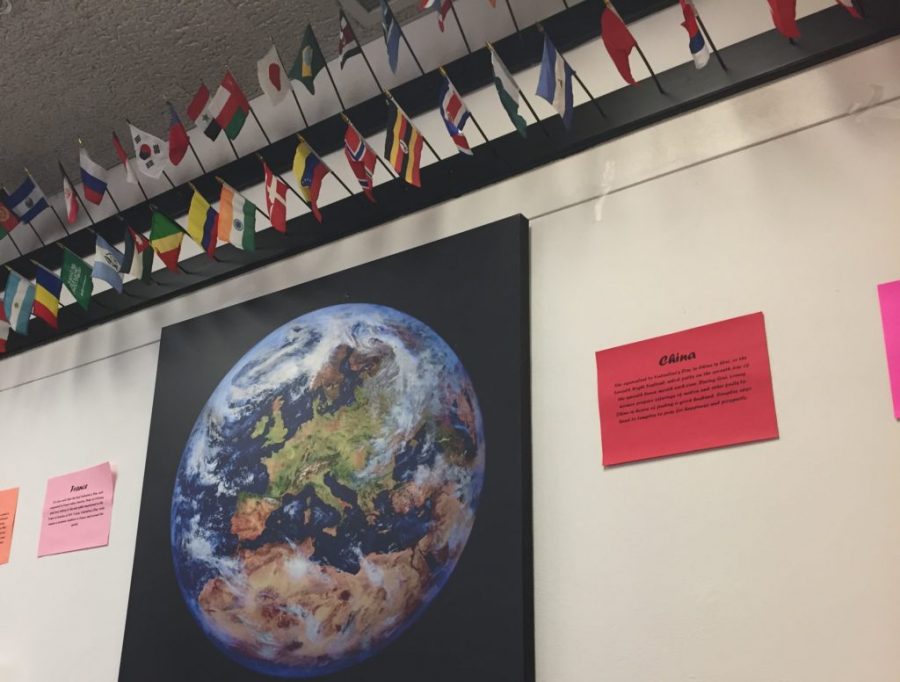Studying abroad can be a great way for undergraduate students to earn credit while on the adventure of a lifetime, but many students don’t know where to start, especially if they are in a tailored program like the arts. I teamed up with the faculty in the Learning Abroad office to get answers to questions every arts student may have about their options when it comes to learning abroad.
Why should I go on a Study Abroad Program?
Rick Batchelor, Learning Abroad coordinator, said there are three main categories of benefit that students gain from studying abroad: academic, personal and professional.
“Many programs, particularly those that are faculty led, are specifically designed to have courses that will fit in with major requirements at the U,” Batchelor said.
He added that even if a program doesn’t cover your department, general education and elective credits can usually be tailored to fit your needs.
Some students go abroad in hopes of gaining professional experience, and many succeed in gaining it. Batchelor gave as one example the Kathmandu, Nepal program in which students collaborate with local non-profits in making a documentary film about the area. At the end of the program, students have the film to add to their portfolio. If students wish to get international work experience, he suggests looking through affiliate programs or connecting with the Hinckley Institute on campus.
“Since arts programs are so broad, finding an internship may require a bit more digging,” Batchelor warned.
As far as personal interests for learning abroad, the programs are a great opportunity for personal growth, according to Tim Slover and Jane England, both program coordinators for the Faculty-Led Theater, Arts and Humanities in London program.
“These programs offer such intensive learning that you have to focus on soaking it in while you’re there, and processing all of the experiences when you return home. That process makes the education exponential, because you will begin applying the new knowledge to your everyday life,” England said.
“Now is the best time to travel abroad, while you’re in school,” Slover said. “Once you graduate, you won’t find weeks of connected free time likely until after retirement.”
How do I find the program that’s best for me?
For students interested, Batchelor recommends logging onto learningabroad.utah.edu and using the “Program Search” feature to see what programs are available. Students using the program search should consider: the focus they want to study, location and how long they wish to be abroad.
“Most faculty-led programs are shorter over the summer or seasonal breaks,” Batchelor explained. “Affiliate programs can be longer depending on where the student chooses to travel, and exchanges are typically a full semester or a year-long trip.”
How do I pay for a study abroad?
Batchelor said there are options for both external and internal funding students can apply for. According to Learning Abroad statistics reports, last year the office distributed over $200,000 in scholarships. Most scholarships and financial aid also apply to study abroad programs.
How can I get information about Learning Abroad?
Learning Abroad offers two events per academic year for students to get involved. One is the Global U Expo, which will take place this year on Sept. 20 from 11 a.m. – 2 p.m. in the Union Ballroom. There will be another similar event in January. Students unable to attend those sessions can visit Learning Abroad office in Union 159, follow Learning Abroad on social media or go to learningabroad.utah.edu.
Program spotlight: Theater, Fine Arts and Humanities in London and British Studies
Slover and England both agreed if students only have one opportunity to go abroad in their lifetime, London is the place to visit.
“A trip to London is kind of like one-stop shopping. There are more populations of people from other nations than anywhere else in the world, represented both in cosmopolitan and urban life and in museums,” Slover said. “If I were to go abroad, there is nowhere I would not want to go, but if you’re interested in anything like the performing arts, London is the world capital.”
Both programs focus on humanities in London, but the Theater trip is one week longer, and it focuses on drama in England. That program is more guided, with 12-14 curricular plays and other activities pre-arranged, including a trip to Hampton Court Palace, contemporary plays and shows at Shakespeare’s Globe Theatre. The British Studies program is faculty-led through the English department, and it changes thematically based on the specializations of the professors that year.
“British Studies is great for people who want a lot of flexible free time to do their own excursions and travel, versus a more immersive theater program with a lot of sites and guidance. Both work well, but some personalities are attracted to different structures,” England said.
The total for last year’s British Studies program was just under $7,000, including tuition, rent, airfare and passport costs. The Theater program is roughly $1,000 more, due to the longer stay and more intensive excursions. Applications for summer programs are not yet available, but will tentatively be due Feb. 15, 2018.
m.hulse@dailyutahchronicle.com
College of Humanities Faculty-Led Programs
Street Scenes: Imagining Cosmopolitan London
Greece from Minoan to Modern Times in Athens and the Greek Isles
Humanities in Motion: Rome
Intensive Chinese Language in Tianjin, China
Intensive French Language and Culture in Grenoble, France
Intensive German Language & Culture in Kiel, Germany
Intensive Italian Language in Siena, Italy
Intensive Japanese Language in Osaka, Japan


